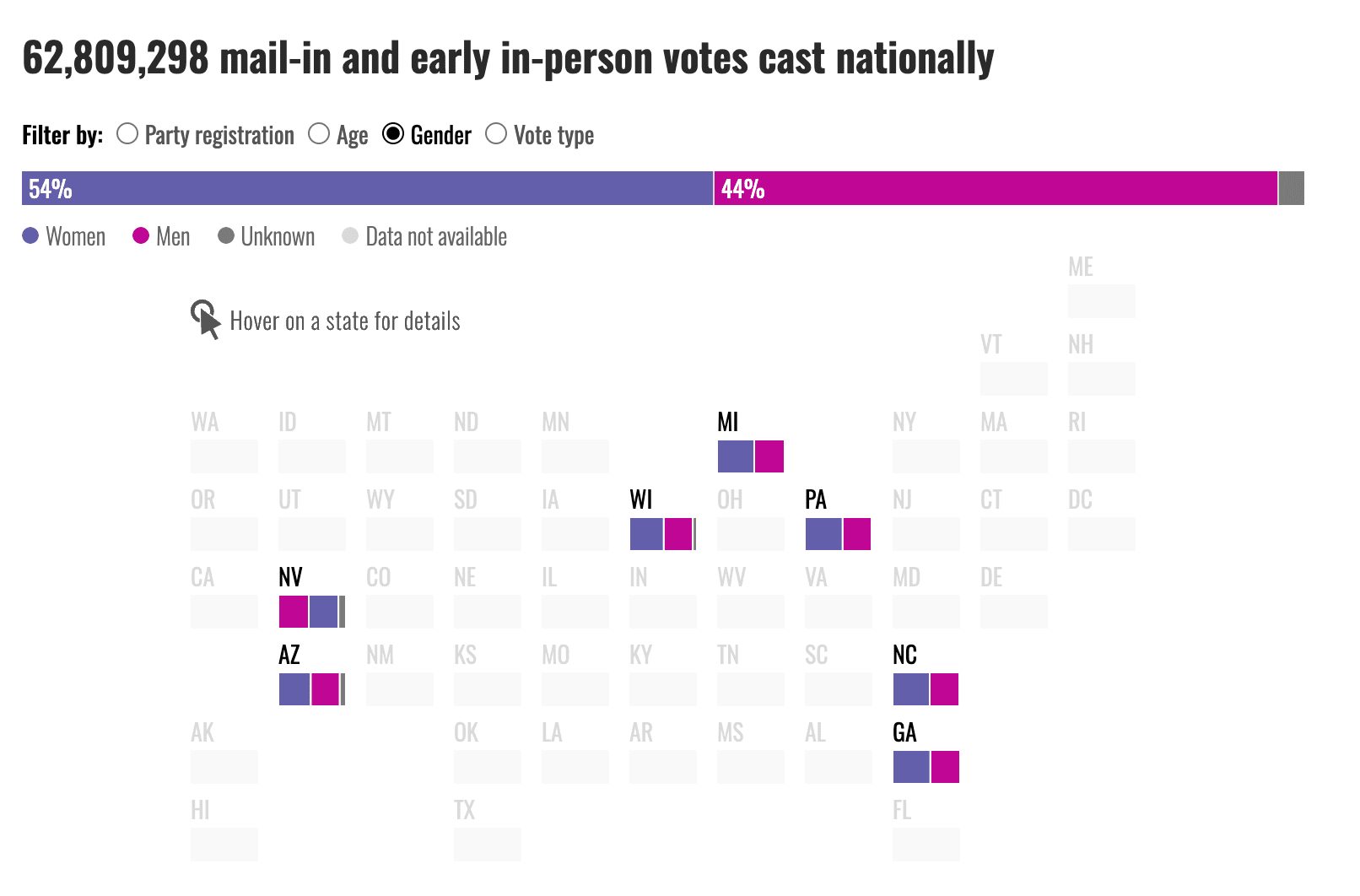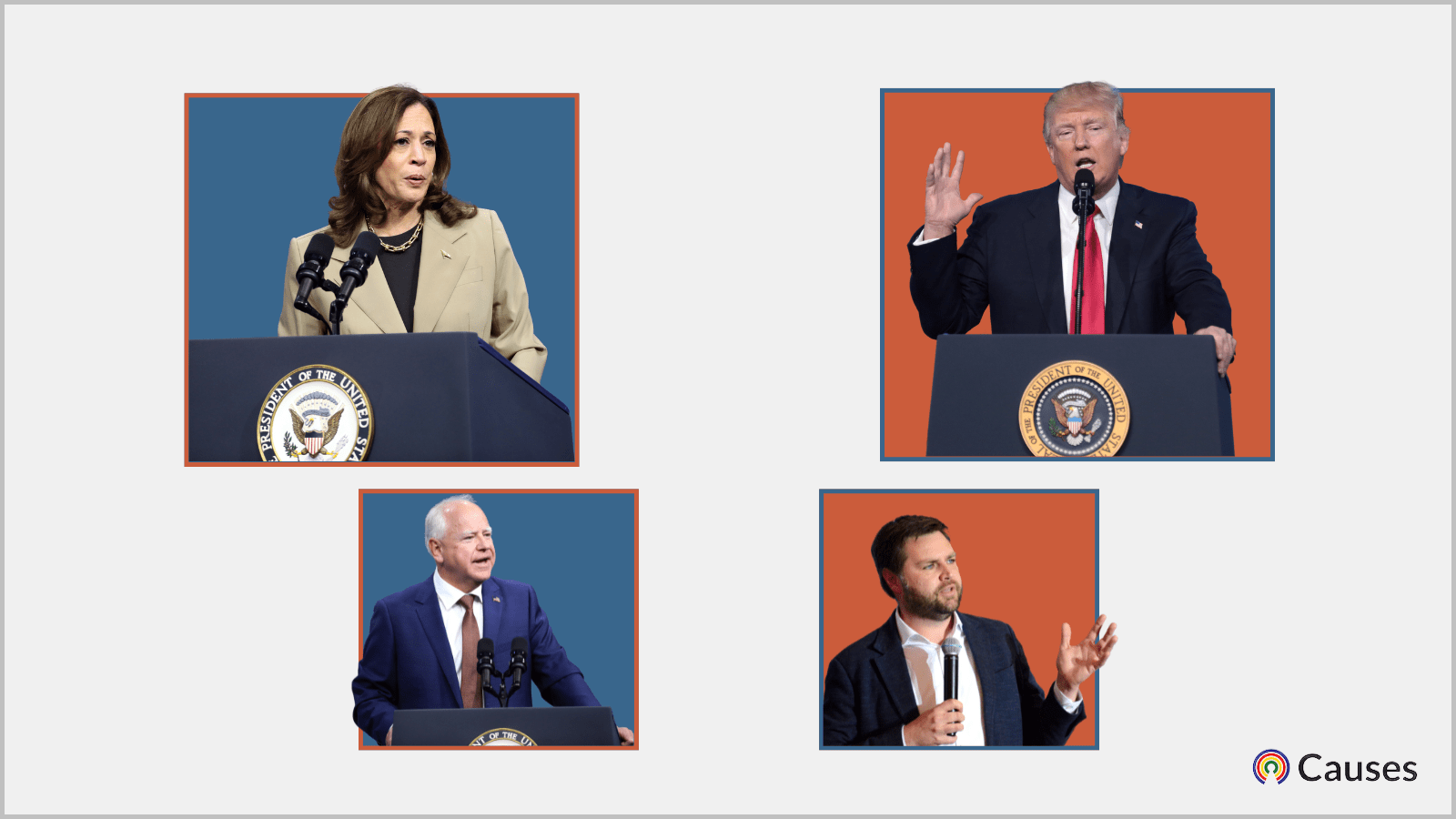
Should Medicaid Cover a Year of Postpartum Care for Moms? (H.R. 4996)
Do you support or oppose this bill?
What is H.R. 4996?
(Updated November 9, 2021)
This bill, known as the Helping Medicaid Offer Maternity Services (MOMS) Act of 2019, would allow states to provide one year of postpartum coverage under Medicaid and the Children’s Health Insurance Program (CHIP). Under current law, states can provide 60 day of postpartum coverage. To incentivize extension, this bill would provide a one-year, five percentage point Federal Medical Assistance Percentage (FMAP) enhancement, thereby increasing federal funding for Medicaid in states that implement the postpartum coverage extension.
Additionally, this bill would require the Medicaid and CHIP Payment and Access Commission to report on specified information relating to coverage of doula services under state Medicaid programs. This would include coverage barriers and recommendations for improvement.
Argument in favor
Maternal mortality has worsened in the U.S. over the past decades, and poor postpartum care, particularly for low-income moms, is one culprit. Extending postpartum care under Medicaid to a year, rather than the current 60 days, would help address preventable maternal deaths and improve maternal health overall.
Argument opposed
This legislation is unnecessary, as the Centers for Medicare & Medicaid Services (CMS) and states already have the ability to expand access to postpartum care under Medicaid without federal legislative action if they believe it’s beneficial to do so.
Impact
New moms; Medicaid; Medicaid coverage for postpartum moms.
Cost of H.R. 4996
A CBO cost estimate is unavailable.
Additional Info
In-Depth: Sponsoring Rep. Robin Kelly (D-IL) introduced this bill to address the United States’ maternal mortality crisis:
“Incentivizing postpartum Medicaid expansion is a critical first step in preventing maternal deaths by ensuring new moms can see their doctor. I’m proud that my colleagues, on both sides of the aisle, came together to put an end to the sad reality of American moms dying while growing their families. We can’t allow the perfect to be the enemy of the good. This is a good, bipartisan first step, but it must be the first of many.”
Every Mother Counts is among a number of maternal health organizations supporting this legislation. Its members write:
“Every Mother Counts writes to express our support for the bipartisan Helping Medicaid Offer Maternity Services Act (H.R. 4996). Every Mother Counts is a non-profit organization seeking to make pregnancy and childbirth safe for every mother, everywhere, by working to achieve quality, respectful, and equitable maternity care for all. We appreciate your leadership in ensuring that the U.S. maternal healthcare crisis receives the attention required to improve the health and healthcare experiences of women and infants across the country, and to eliminate the extreme health disparities affecting communities of color and Indigenous communities.”
While it supports federal legislation to expand postpartum coverage under Medicaid, the Center on Budget and Policy Priorities (CBPP) notes that the Centers for Medicare & Medicaid Services (CMS) and states already have the ability to expand access to postpartum care under Medicaid without federal legislative action.
This legislation passed the House Committee on Energy and Commerce with the support of 36 bipartisan cosponsors, including 26 Democrats and 10 Republicans. It has been endorsed by many leading health and family advocates, including the American College of Obstetricians and Gynecologists (ACOG), Blue Cross Blue Shield Association, and Black Women’s Health Imperative.
Of Note: Maternal mortality outcomes in the U.S. have deteriorated in recent years, to the point that it was more dangerous to have a baby in 2018 than it was in 1985. Maternal mortality risk is higher among Black mothers, with Black women dying due to maternity-related causes at 3-4 times the rate of white women.
According to the Centers for Disease Control and Prevention (CDC), 700-900 American moms die due to pregnancy or birth-related complications; statistics compiled by the American College of Obstetricians and Gynecologists (ACOG) suggest that more than half of these deaths are preventable by improved access to healthcare.
Currently, the majority of pregnancy-related deaths in the U.S. occur after the day of delivery, and nearly a quarter of deaths happen more than six weeks postpartum. However, Medicaid currently only covers women for two months after their babies’ births.
An increasing volume of literature indicates benefits to having Medicaid coverage for one year postpartum. With over 40% of births in the U.S. covered by Medicaid, expanding postpartum coverage under Medicaid to a year could affect many mothers.
The Commonwealth Fund observes that Medicaid is well-positioned to provide postpartum care:
“Medicaid is well positioned to provide this kind of coverage and care. It has broad reach — it covered around 42 percent of births in the United States in 2018. And it is making a difference: in Medicaid expansion states, maternal mortality dropped by 1.6 deaths per 100,000 women. Extending Medicaid coverage for pregnant women in every state for a full year after birth is a first step to eliminating disparities and improving outcomes. We are already seeing the effects of increasing coverage on health outcomes, with decreasing maternal mortality rates in Medicaid expansion states. The impact could be even greater if all Medicaid-covered pregnant women were able to keep their coverage for a longer period, a move that would support the transformation of maternity care.”
To date, 36 states and the District of Columbia have adopted expanded eligibility for Medicaid under the Affordable Care Act (ACA), allowing low-income women to continue their pregnancy-related Medicaid coverage after the 60-day postpartum period. This includes multiple states in which legislative action to extend Medicaid coverage has been taken. However, in the 14 states that haven’t adopted the ACA’s Medicaid expansion, postpartum women need to requalify for Medicaid as parents to stay on the program.
Writing for The Incidental Economist, Urban Institute researchers Stacy McMorrow, Genevieve M. Kenney, Emily M. Johnston, and Jennifer Haley found that expanding Medicaid coverage for postpartum women would benefit at least 200,000 low-income uninsured citizen new mothers:
“Extending postpartum Medicaid coverage has the potential to help at least 200,000 low-income uninsured citizen new mothers gain coverage. Others with higher incomes and some noncitizen mothers could also benefit, especially in states that currently provide more generous pregnancy-related coverage through Medicaid or the Children’s Health Insurance Program. A postpartum extension would allow new mothers to maintain continuity of care in the year following delivery, access critical health services as they recover from pregnancy and delivery, and potentially transition to other sources of coverage on a more flexible timeline. A postpartum Medicaid extension would only benefit women in the first year after pregnancy, however, leaving other low-income mothers and fathers at risk of uninsurance, particularly in nonexpansion states. Evidence from the ACA Medicaid expansion suggests that a more comprehensive expansion has the potential to increase coverage, access to care, and financial well-being among both new mothers and other parents.”
Media:
-
Sponsoring Rep. Robin Kelly (D-IL) Press Release
-
Kaiser Family Foundation (Context)
-
Center on Budget and Policy Priorities (CBPP) (Context)
-
The Commonwealth Fund (Context)
-
National Academy for State Health Policy (NASHP) (Context)
-
The Incidental Economist (Context)
Summary by Lorelei Yang
(Photo Credit: Unsplash / Sharon McCutcheon)
The Latest
-
 Puberty, Privacy, and PolicyOn December 11, the Montana Supreme Court temporarily blocked SB99 , a law that sought to ban gender-affirming care for read more... Families
Puberty, Privacy, and PolicyOn December 11, the Montana Supreme Court temporarily blocked SB99 , a law that sought to ban gender-affirming care for read more... Families -
 Women Are Shaping This Election — Why Is the Media Missing It?As we reflect on the media coverage of this election season, it’s clear that mainstream outlets have zeroed in on the usual read more... Elections
Women Are Shaping This Election — Why Is the Media Missing It?As we reflect on the media coverage of this election season, it’s clear that mainstream outlets have zeroed in on the usual read more... Elections -
 Your Share of the National Debt is ... $105,000The big picture: The U.S. federal deficit for fiscal year 2024 hit a staggering $1.8 trillion, according to the Congressional read more... Deficits & Debt
Your Share of the National Debt is ... $105,000The big picture: The U.S. federal deficit for fiscal year 2024 hit a staggering $1.8 trillion, according to the Congressional read more... Deficits & Debt -
 Election News: Second Trump Assassination Attempt, and Poll UpdatesElection Day is 6 weeks away. Here's what's going on in the polls and the presidential candidates' campaigns. September 24 , read more... Congress Shenanigans
Election News: Second Trump Assassination Attempt, and Poll UpdatesElection Day is 6 weeks away. Here's what's going on in the polls and the presidential candidates' campaigns. September 24 , read more... Congress Shenanigans
 Climate & Consumption
Climate & Consumption
 Health & Hunger
Health & Hunger
 Politics & Policy
Politics & Policy
 Safety & Security
Safety & Security
